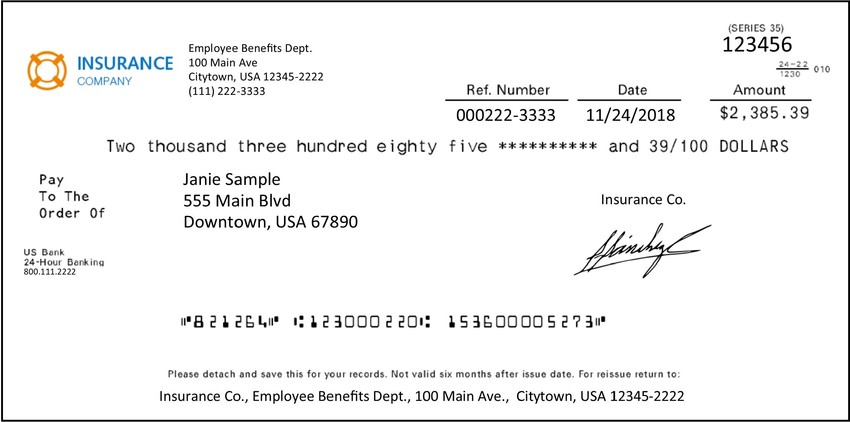Unveiling the Secrets of Healthcare Credentialing: Everything You Need to Know

Healthcare credentialing plays a vital role in ensuring the quality and safety of healthcare services. Whether you're a medical professional, an insurance company, or a healthcare provider, understanding the ins and outs of credentialing is essential. From medical credentialing to provider credentialing, and insurance credentialing, this article will uncover the secrets of the credentialing process and provide you with everything you need to know. So, let's delve into the world of healthcare credentialing and unravel its complexities step by step. Get ready to embark on a journey that will demystify credentialing for doctors, explore the role of insurance credentialing companies, navigate through the provider credentialing process, and discover the significance of credentialing healthcare providers.
The Importance of Healthcare Credentialing
Healthcare credentialing plays a crucial role in ensuring that patients receive quality care from competent and qualified healthcare providers. Credentialing verifies the professional qualifications, experience, and credentials of healthcare professionals, such as doctors, physicians, and therapists. It is a rigorous and systematic process that ensures healthcare providers have met the necessary standards and qualifications to practice in their respective fields.
By verifying a healthcare provider's credentials, credentialing helps protect patient safety and reduces the risk of medical errors. It ensures that only qualified and competent professionals are allowed to deliver healthcare services, minimizing the chances of substandard or inadequate care. Credentialing also helps healthcare organizations in maintaining a high standard of care and reputation, as they can confidently demonstrate that their providers meet the required qualifications.
Furthermore, healthcare credentialing is essential for insurance companies and other payers to evaluate healthcare providers for participation in their networks. Credentialing allows insurance companies to ascertain the legitimacy and quality of providers, ensuring that they are capable of delivering services covered by insurance plans. This ensures that patients have access to providers who meet the requirements of their insurance coverage, leading to smoother billing and reimbursement processes.
Overall, healthcare credentialing plays a vital role in safeguarding patient safety, maintaining quality care standards, and facilitating smooth interactions between healthcare providers and insurance companies. It ensures that only qualified professionals are serving patients and helps build trust between healthcare professionals, patients, and payers within the healthcare system.
The Credentialing Process in Healthcare
Healthcare credentialing is a crucial process that ensures the qualifications and standards of healthcare providers. This process involves verifying the education, training, experience, and licensure of healthcare professionals. Credentialing is vital for maintaining the quality and safety of healthcare services delivered to patients.

The credentialing process in healthcare typically consists of several steps. First, healthcare providers submit their application, which includes their personal information, educational background, work experience, and any relevant certifications. The healthcare facility or insurance company then reviews the application and conducts a thorough background check.
During the review process, the healthcare provider's credentials are carefully examined to verify their authenticity and compliance with industry standards. This includes validating their professional licenses, certifications, and educational qualifications. Additionally, references may be contacted to gather feedback on the provider's past performance.
Once the verification process is complete, a decision is made regarding the credentialing of the healthcare provider. If approved, the provider is deemed eligible to deliver healthcare services to patients under the umbrella of the healthcare facility or insurance company. Conversely, if there are any discrepancies or concerns, the provider may be subjected to further evaluation or denied credentialing.
Overall, the credentialing process plays a vital role in ensuring the competence and credibility of healthcare providers. By verifying their qualifications and adherence to industry standards, healthcare organizations can maintain high-quality standards and provide patients with safe and reliable care.
Choosing the Right Credentialing Services
When it comes to choosing the right credentialing services for your healthcare practice, there are several factors to consider. First and foremost, Insurance billing software need to ensure that the credentialing company you choose has expertise in your specific field, whether it's medical, behavioral health, or another specialty. Specialized knowledge and experience are essential for a smooth and efficient credentialing process.
Secondly, it's crucial to assess the reputation and track record of the credentialing services you are considering. Look for companies that have a proven track record of success in helping healthcare providers navigate the complex world of insurance credentialing. Online reviews, testimonials, and referrals from trusted colleagues can provide valuable insights into the credibility and reliability of a credentialing service.
Lastly, consider the level of customer support and communication offered by the credentialing company. Timely and efficient communication is vital throughout the credentialing process, as any delays or miscommunications can significantly impact your ability to provide healthcare services and get reimbursed by insurance companies. Look for a credentialing service that is responsive, accessible, and committed to keeping you informed every step of the way.
By carefully evaluating the expertise, reputation, and communication of different credentialing services, you can make an informed decision and choose the right partner to support your credentialing needs. Remember, the right credentialing services can streamline your practice's operations, increase efficiency, and ultimately contribute to the overall success of your healthcare business.
